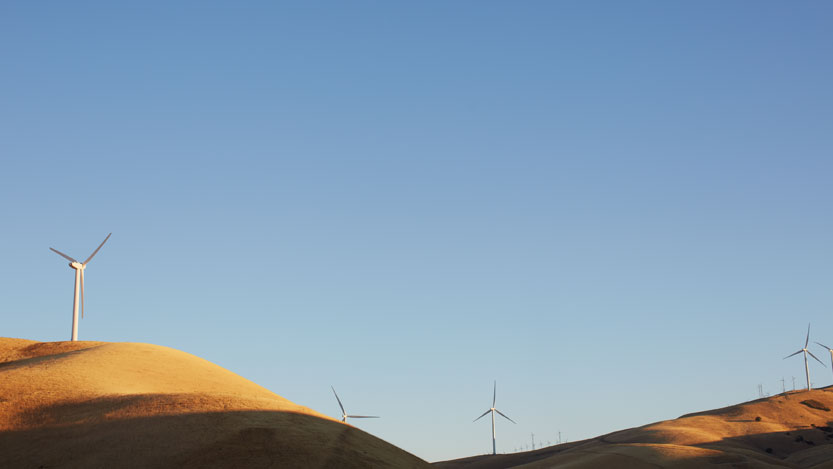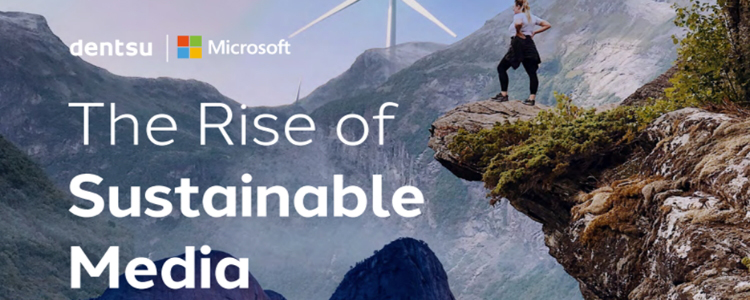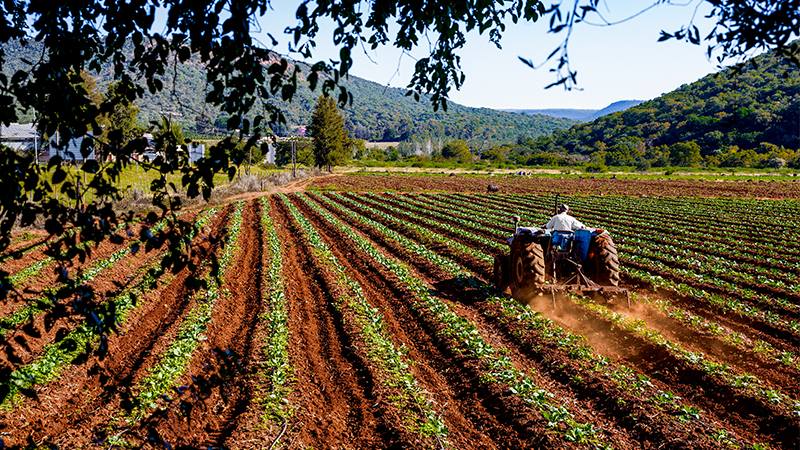Blog post
Brand building: The importance of a sustainable future

When you think about your favorite brands, what makes them stand out amongst their competitors? Is it their product, their price, or are there other qualities that influence your perception of their company? We’re noticing a shift in consumers’ mindsets: they’re paying more attention to the story behind the brand and purchasing products based on the company’s ethical standards. They’re showing a desire to support businesses that treat their employees, their customers, and the environment well. With this societal change, it’s crucial that brands start adapting to an eco-friendlier business model, as sustainable trends in the marketplace are only projected to increase. Lucky for you, Microsoft Advertising Insights is here to help. Not only are we doing work on building a sustainable future (read up on our efforts to plant 250,000 trees), we’ve also been collecting search data on trends that will be helpful to growing your business during this new era.
Sustainability in the retail marketplace
The retail landscape has undergone a period of rapid growth this past year. In fact, it’s estimated that the evolution in consumer and business digital adoption from the lockdowns during the pandemic equated to 10 years of growth!1 Microsoft Advertising discovered that as online retail activity increases, brand loyalty decreases. We saw a 19% year-over-year (YoY) decline for apparel brand searches in the first half of 20212 and a McKinsey report states that 44% of people tried new brands during the first lockdown.1 A key reason people are shifting away from brands they’ve bought from before is likely due to apprehensions around sustainability. In the UK alone, 42% of adults were said to have stopped purchasing certain clothing and footwear brands because of ethical and sustainability concerns.3 As reported in our 2021 Consumer Trends Report, “Consumers are moving toward minimalism and making sure that anything they do purchase is sustainable and has low impact.” Retail will continue to explode over the next year as demand increases, so if you haven’t yet evaluated your environmental goals for 2022, now is a great time to start.
Reducing the carbon footprint in the travel industry
Prior to COVID-19, tourism was responsible for 8% of the world’s carbon emissions.4 However, due to lockdowns, this number heavily declined in 2020 as traveling restrictions were imposed. COVID-19 was a large player in raising awareness on the need for sustainable travel. Although Gen-Z seems to be biggest supporter of increasing sustainability, 48% of all worldwide travelers agreed that finding a sustainable travel option is important.5 Along with this, more than one third of respondents stated they would be willing to pay more to stay in hotels that are environmentally friendly and have no interest in visiting countries that aren’t making an effort to fight climate change. The demand for change is expected to continue growing; 69% of global travelers have stated they expect the travel industry to offer more sustainable travel options in the future.6 So while consumers are already making moves to travel more sustainably (e.g., packing lighter, reducing waste, etc.), it’s now time for travel companies to follow suit. To read more about how to be an ally in reducing your carbon footprint, download our full insights on Sustainable Travel.
Charging ahead: eco-friendly car models
You’ve now seen examples of how both the retail and travel industries are adapting to sustainable trends, but perhaps one of the most drastic changes in our environment is in the automotive industry. While gas-fueled cars are still mainstream, electric vehicles are expected to reach manufacturing cost parity with gasoline vehicles by 2024.7 As a result, consumer interest is skyrocketing. We found that questions around price points and incentives on electric vehicles index 773% higher than all other autos. Not surprisingly, clicks for electric vehicles have also jumped 185% above vertical-wide growth since 2019.8 Once costs decline, we can expect demand to surge. Currently, 30% of new gasoline automobiles have an alternative fuel variant to their vehicle, but we expect this to grow exponentially with time. If you’re an auto advertiser, it’s worth expanding your keyword list to meet demand, since sustainable shoppers ask 263% more questions than the typical auto user.9 Be sure to include alternative fuel non-brand keywords as well to capture the growing shopper interest and educate consumers on options available to them. This is just the start — download the full insights for many more tips from Microsoft Advertising.
An opportunity for the future
When thinking about the future, it may seem daunting to change your business model to match consumers’ eco-friendly requirements. However, a brand’s adaptation to a sustainable future will be key to their survival in years to come. Don’t wait to capitalize on these consumer behavior trends; Microsoft Advertising is here to help you reach your business goals while keeping your customers happy. It all starts with the desire to do better for our environment.
[1] McKinsey - Retail reimagined: The new era for customer experience, Aug 2020.
[2] Microsoft Advertising Internal Data 2019 to 2021.
[3] eMarketer - For Which Types of Consumer Goods/Services Have UK Adults Stopped Purchasing Certain Brands due to Ethical/Sustainability Concerns? (March 2021).
[4] Nature.com, The carbon footprint of global tourism, 2018.
[5] STR, Feb 2020 survey on respondents from UK, US, France, Norway, Italy, Mexico, Spain, Australia, Argentina.
[6] Booking.com, Impact awakening: the rise of responsible travel, published research, July 2020.
[7] The Guardian, Electric cars 'as cheap to manufacture' as regular models by 2024, Oct. 2020.
[8] Microsoft Internal Data, electrified investment and clicks include hybrid, plug-ins and electric brand and non-brand.
[9] Microsoft Internal Data, Jan.-Mar. 2020, automotive queries–question specific.
Your input makes us better
Take our quick 3-minute survey and help us transform your website experience.





